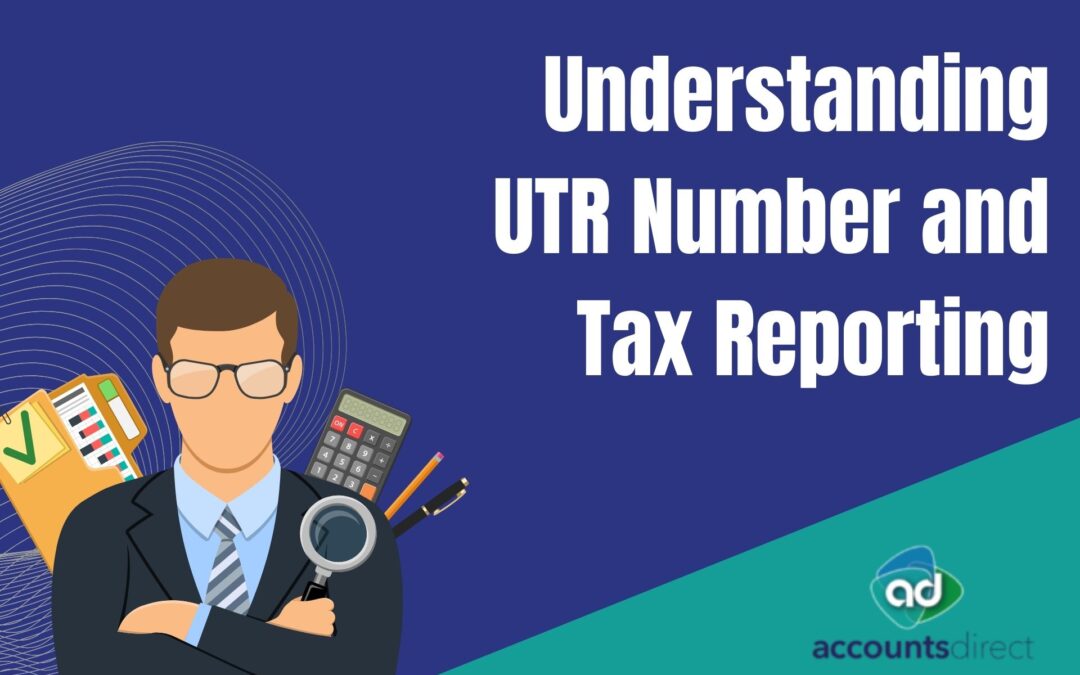As a UK resident and taxpayer, having a unique tax reference (UTR) number is essential to reporting income and fulfilling tax obligations correctly. Understanding the concept of a UTR number and its significance in proper tax reporting is important. UTR stands for \”Unique Taxpayer Reference,\” a 10-digit number HM Revenue and Customs (HMRC) assigned to individuals and companies for tax purposes.
This blog post will discuss the meaning of the UTR number, why it is essential, and how to obtain one for proper tax reporting.
What Is A UTR Number?
A UTR number is a unique identifier used by HMRC for tax purposes. It is a 10-digit number that remains the same throughout your life, even if you change your name, address, or tax status. This number is unique to each individual or company and is used to track their tax obligations and records. A UTR number differs from other identification numbers, such as a National Insurance number, company house number, or VAT registration number.
Why Is A UTR Number Important?
Unique Taxpayer Reference is essential for proper tax reporting because it helps HMRC to identify and track individuals and companies for tax purposes. It is used in all tax-related communications with HMRC, such as filing tax returns, paying taxes, or claiming tax refunds. Without a unique taxpayer reference code, you will not be able to file your tax returns or receive any tax refunds, and you may also face penalties from HMRC for not complying with tax laws.
A UTR number Is necessary For Several Reasons:
Tax reporting: It is required for individuals who need to file a self-assessment tax return, which includes self-employed individuals, freelancers, landlords, and high earners. Your UTR number will be used to identify your tax records and calculate the taxes you owe.
Personal allowance: When starting a new job, your employer will ask for your UTR number to ensure you receive the correct personal allowance. This is the amount of income you can earn before you start paying income tax.
Claiming tax refunds: If you have overpaid your taxes, you can claim a tax refund by providing your UTR number to HMRC.
Benefits and tax credits: Your UTR number may be required when applying for certain government benefits or tax credits. This is to ensure you are not receiving more benefits or credits than you are entitled to.
How To Obtain A UTR Number?
If you are new to the UK tax system or have never received a UTR number before, here are the steps to follow to obtain one:
Register for self-assessment: To receive a UTR number, you must register for self-assessment with HMRC. This can be done online through the HMRC website or by completing the form SA1 and sending it to HMRC by post.
Wait for your UTR number: After registering for self-assessment, you will receive a UTR number within 10 working days. If you have yet to receive your number after this time, you can contact HMRC for assistance.
Check previous tax returns: If you have filed a tax return and lost your UTR number, you can find it on any tax return or correspondence from HMRC.
Apply to HMRC: If you cannot register for self-assessment, you can apply directly to HMRC for a UTR number. This might be the case if you have not received one automatically or if you are not eligible for self-assessment but still need a UTR number for other purposes.
If you are a company, you will automatically receive a UTR number when you register your company with Companies House. This number will be used for all your tax-related communications with HMRC.
It is important to note that you should only obtain one unique taxpayer reference code for each individual or company. Multiple UTR numbers can create confusion and result in incorrect tax calculations or penalties.
Final Words
In summary, a UTR number is a unique identifier that HMRC uses for tax purposes. It is important to have one for proper tax reporting and to avoid any penalties from HMRC. Ensure you obtain your UTR number through the correct channels and avoid having multiple UTR numbers. If you are unsure about your UTR number or need assistance with tax reporting, it is always best to seek professional advice from a tax advisor or accountant. Keep your unique taxpayer reference code safe, as it will be required for all your tax-related communications with HMRC.

